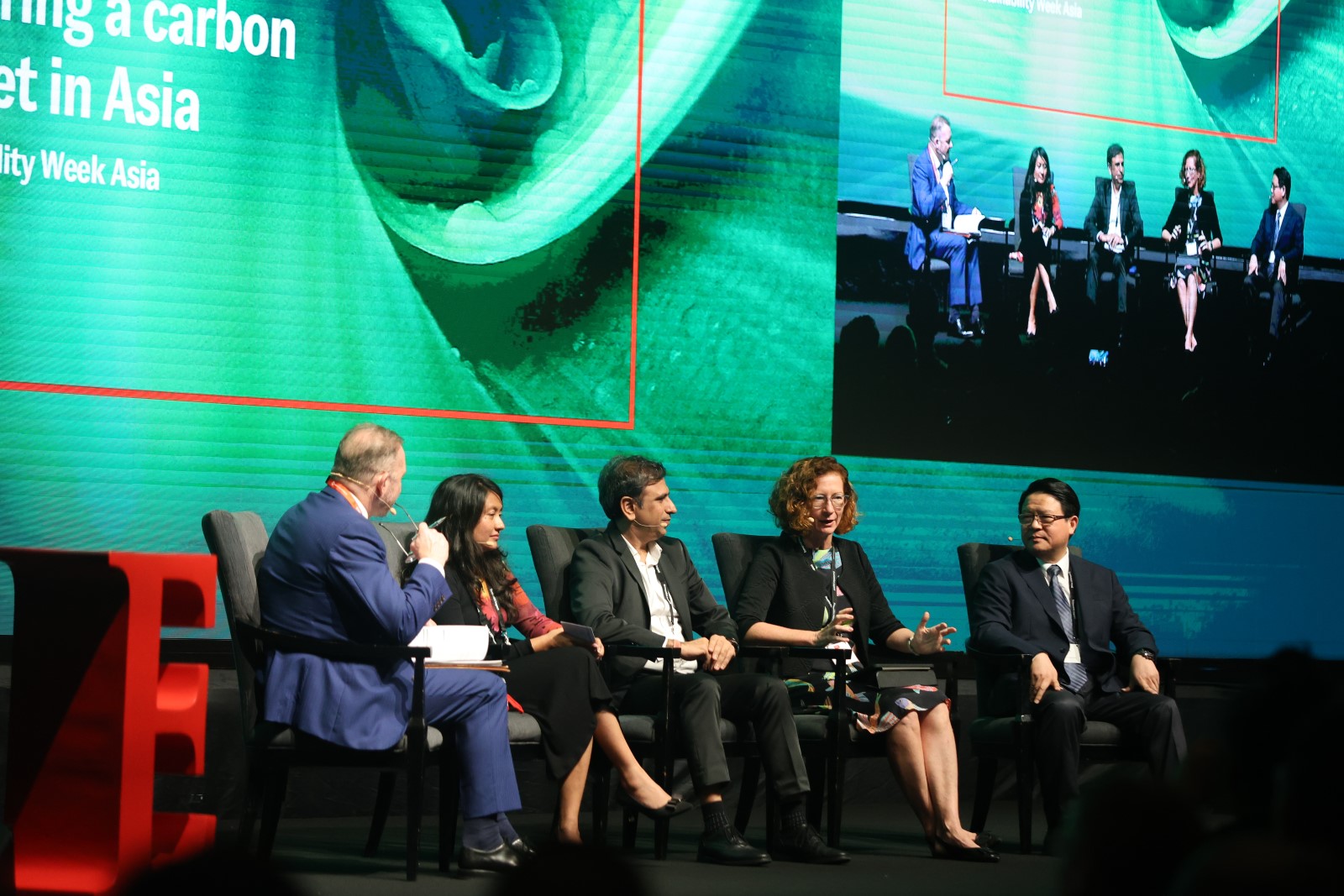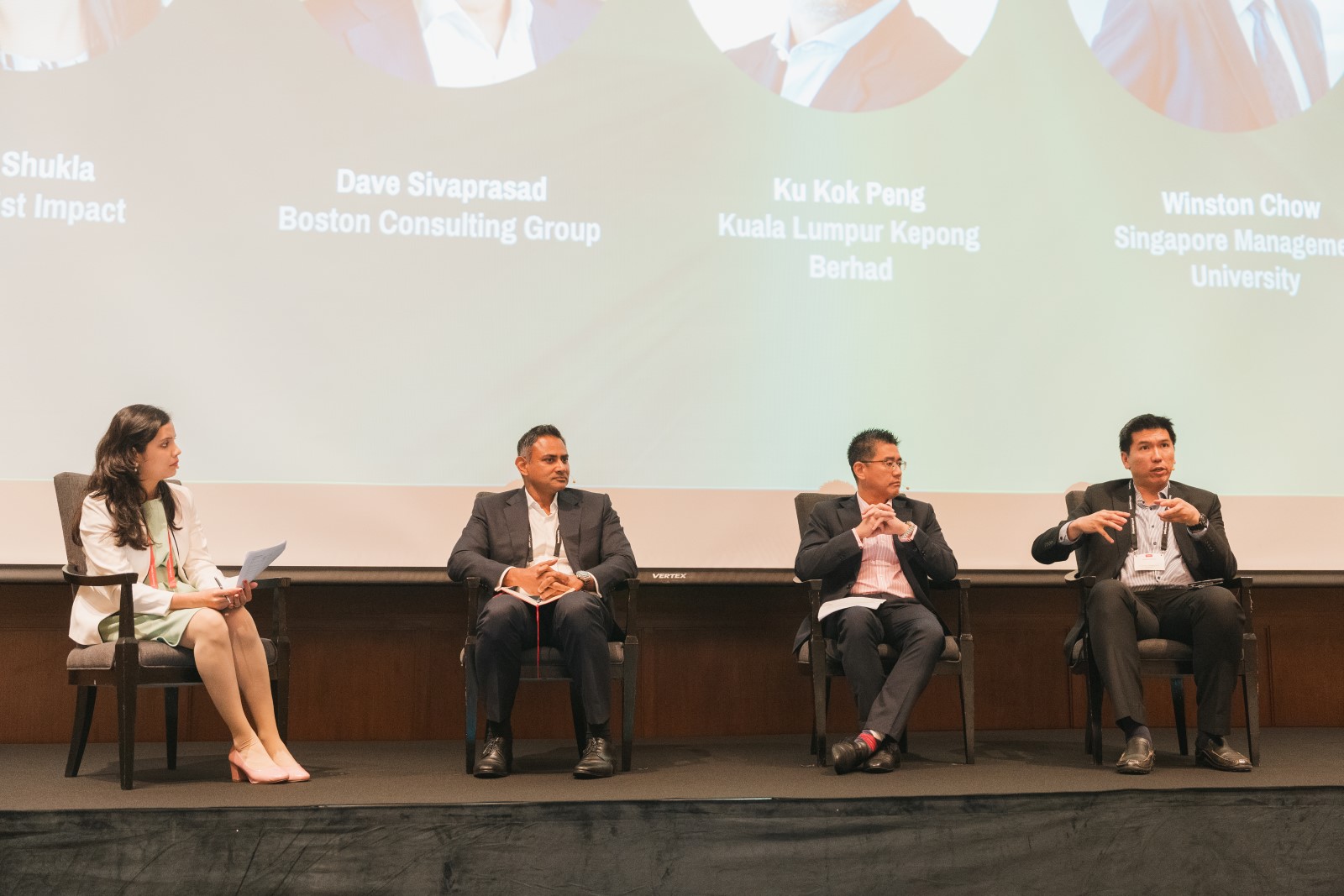
Trust is urgently needed to make significant progress on the global journey to achieve the Sustainability Development Goals, particularly the most needed fundamental, green finance. This was the opinion that three experts from SMU shared at a forum at the 3rd annual Sustainability Week Asia.
Organised by Economist Impact, the Economist Group’s business intelligence platform, under the theme “Achieving Climate Targets Faster”, the forum took place on 12 and 13 March 2024 in Bangkok, Thailand.
Some of the topics discussed during the forum included green business transition, net zero emissions, climate change and climate risks, developing the Asia Carbon Credit market, and monetary policies for sustainability and environmental friendliness.
Three of the panels during the forum featured SMU’s academics and experts on the panel, sharing their profound perspectives while exchanging knowledge with other sustainability-minded individuals from various sectors.
Building a feasible carbon market in the region
Speaking on the “Fostering Carbon Market in Asia” panel, SMU Singapore Green Finance Centre Director Ms Nikki Kemp opened by sharing how the carbon market in the region had underperformed over the last decade or two, compared to its potential.
“It’s a shame because it’s a financing tool that is based on performance. You have to act to remove or reduce carbon, in order to create the credit and trade it,” she said, explaining how the carbon market in the region is impeded by both fragmentation as well as the fact that it is a late entrant from a compliance perspective.
“The voluntary market just hasn’t had the confidence to build into any substance. What we’ve done [to improve this] at SMU through the Singapore Green Finance Centre is look at some of the broader framing that needs to be done in order to support the market. Market infrastructure is critically needed to create more confidence [in the carbon market].”
Ms Kemp also outlined how price certainty and transparency were key to building a market, and emphasised the importance of cross-border collaboration to reach a common agreement on market standards that all countries can share, which will help improve the carbon market's accuracy, reliability, and transparency.
Designing financial tools to help align profitability with sustainability
With regards to how to finance the transition to more sustainable practices, Associate Professor of Finance and Co-director of SMU’s Singapore Green Finance Centre Hao Liang shared, “We have a big financing gap. Currently, most of the money that drives the transition is in the public sector, but most of the capital is in the private sector. So, the question is, how do you mobilise this huge amount of capital in the private sector to close the financing gap?”

Prof Liang went on to elaborate on the various barriers to mobilising this capital – the profit seeking behaviour of investors for one. There is a challenge in convincing investors to take the step and invest in sustainability initiatives amid the uncertainty of seeing any returns from this investment.
“My view is that it's perfectly okay to tell people to make money. If you tell people you have to sacrifice profit to be sustainable, people won't buy the idea. But if you tell people, there is a good opportunity for you to make money by being green, by being sustainable, their capital can be more effectively mobilised.”
Prof Liang concluded that green finance was about designing the funding structure, market mechanism, tools, the instruments to help firms make money along the way in achieving a green economy.
The importance of including nature and biodiversity in business practices
“You get way more bang for your buck if you place a focus on biodiversity conversation in your business practices,” said Professor of Urban Climate and Pillar Lead (Urban Infrastructure) Winston Chow. “It can protect you from a multitude of emergent climate risks.”

He was sharing his perspective as co-chair of the IPCC Working Group II on the “Climate Risk: Protecting Ecosystems and Biodiversity" panel at the forum’s second day. Prof Chow went on to emphasise the importance of green spaces as a tool or strategy for both climate mitigation and adaptation.
Prof Chow cited access to financial capital as one of the most difficult challenges for countries to achieve sustainability, and stated that scientists worldwide, including those at SMU, have assessed methods in accounting for the value of natural capital. This can create different options to reduce business operational costs and also further a country’s sustainability journey and initiatives.
"The idea is that if other countries can have spaces for reforestation, soil management, marine forests and other ecosystem restoration projects, they can trade these conserved ecosystems as biodiversity credits from one country to another as global frameworks for these credits develop and mature,” Prof Chow explained.
“So, for example, if one country lacks the capacity for reforestation, they look to another country that does. They can then repay the other country and claim that this is sufficient to cover the credit. We hope that global frameworks can be put into place so that countries and businesses can therefore have the trust allowing for a fair trading of carbon and biodiversity credits.”


